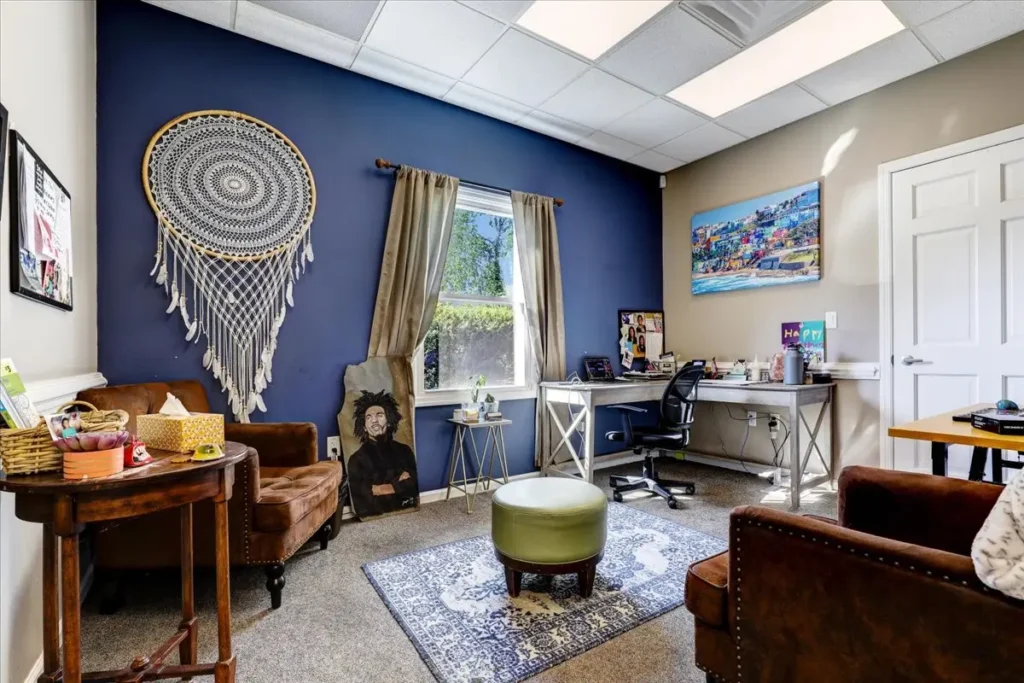Explore our multiple pathways to lasting recovery at our mental health & addiction treatment center in New Jersey at Relevance Recovery.
Biofeedback therapy is a revolutionary form of treatment that has shown great promise in helping individuals with substance use disorders (SUD) gain control over their mind and body during the recovery process.
By utilizing electronic sensors and specialized medical devices, biofeedback provides valuable feedback on the body’s physiological responses, allowing medical professionals to create tailored treatment plans for each individual.


At Relevance Behavioral Health, we focus on treating a wide range of mental health and substance use issues.
Our approach emphasizes tailored treatment plans that use effective and holistic strategies, promoting lasting recovery for our clients.
We work with most major insurance carriers to help provide affordable, accessible treatment options to those who need it most. Our admissions coordinators can answer all of your questions. Call for a confidential assessment and insurance verification.





















During biofeedback therapy, various physiological functions are tracked, including:
These functions are recorded by biofeedback machines and displayed to the patient through visual cues such as pulsing lights or images on a computer monitor.
For example, if an individual’s heart rate appears as a pulsing light on the screen, a rapid pulsation indicates the need for stress-relieving techniques to lower the heart rate. As the individual practices relaxation exercises, the pulsing light or image slows down correspondingly, indicating progress in self-regulation.


Biofeedback therapy incorporates various exercises that empower individuals in their recovery journey. These exercises focus on promoting relaxation, mindfulness, and positive imagery to help individuals regain control over their mind and body.
Mindfulness meditation is an exercise that centers around releasing negative emotions and thoughts through peaceful concentration.
By focusing on the present moment and observing thoughts without judgment, individuals can cultivate a sense of calm and reduce stress levels.
Progressive muscle relaxation is an exercise where individuals target specific muscle groups to release tension and promote overall relaxation.
By systematically tensing and then relaxing each muscle group, individuals can alleviate muscle stiffness and experience a deep sense of relaxation.
Guided imagery is an exercise that directs thoughts toward soothing and positive images and scenarios.
By visualizing calming scenes or engaging in guided narratives, individuals can relax both their mind and body, reducing stress and promoting a sense of tranquility.
Our expert admissions coordinators will create a custom plan for you.
Biofeedback therapy is typically administered by trained medical professionals using specialized equipment. However, advancements in technology have allowed for the development of specialized biofeedback smartphone apps that can supplement supervised therapy sessions, providing individuals with the convenience of practicing biofeedback exercises at home.
On-site biofeedback therapy sessions typically last between 30 minutes to an hour, depending on the individual’s needs. The number of sessions required varies based on the severity of the addiction, with individuals with milder addictions potentially benefiting from as few as 10 sessions, while those with more severe addictions may require up to 50 sessions
One of the significant advantages of biofeedback therapy is its noninvasive nature. Individuals who experience unpleasant reactions to addiction treatment medications may find biofeedback to be an effective alternative. Additionally, biofeedback therapy is particularly beneficial for pregnant women recovering from addiction, as it offers a medication-free treatment option.
Biofeedback, combined with other addiction treatment therapies, such as cognitive-behavioral therapy (CBT), can provide individuals with a psychological edge in overcoming addiction. By understanding the physical and psychological effects of addiction and learning how to modify these effects through biofeedback therapy, individuals can regain a sense of control over their recovery journey.
Moreover, biofeedback therapy has shown promising results in treating mental health disorders that often co-occur with substance abuse, such as attention deficit hyperactivity disorder (ADHD), obsessive-compulsive disorder (OCD), and post-traumatic stress disorder (PTSD). By addressing these underlying mental health issues through biofeedback, individuals can experience more comprehensive and holistic healing.
Biofeedback therapy offers a powerful tool for individuals seeking recovery from substance abuse and mental health concerns. By providing real-time feedback on physiological responses, individuals can gain insight into their body’s involuntary functions and learn techniques to regulate their responses to stressful situations.
With its noninvasive nature and ability to address co-occurring mental health disorders, biofeedback therapy holds great promise in empowering individuals on their path to recovery.
If you or someone you know is struggling with addiction, consider reaching out to a treatment provider to explore the benefits of biofeedback therapy and discover a comprehensive addiction treatment plan tailored to your specific needs. Take the first step towards a healthier and more fulfilling life today.